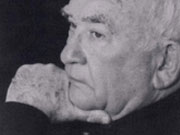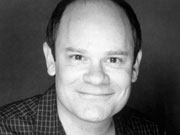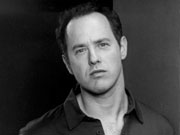Star Wars: Knights of the Old Republic Q&A
Star Wars: Knights of the Old Republic Q&A We take a look at how the game's voice cast is shaping up.
LucasArts' upcoming role-playing game, Star Wars: Knights of the Old Republic, is one of the most ambitious uses of the Star Wars license seen in quite some time. Canadian developer BioWare, whose skill in the genre has been proven with the Baldur's Gate series, is crafting a unique game that is shaping up to offer an epic adventure set in a rich universe. One of the elements that will help complement the impressive visuals and gameplay is the audio. Knights of the Old Republic will feature a sizable chunk of voice acting to bring the game's large cast to life. The game's voice cast includes well-known actors, such as Ed Asner, Raphael Sbarge, Ethan Philips, Jennifer Hale, and Phil LaMarr. We had the chance to talk to Darragh O'Farrell, voice department manager for the game at LucasArts, about how everything is coming together.
GameSpot: Could you tell us a bit about the process of planning voice for a game like Star Wars: Knights of the Old Republic?

Darragh O'Farrell: With a game as big as Knights of the Old Republic, 15,000 lines and 300 characters, voice production has to start at least six months prior to beta. With so many characters and such a large script, good planning and organization are key to a successful production. In order to minimize studio time, we have a unique script for each character and file them alphabetically in folders. One complete copy of the Knights of the Old Republic script fills up 10 5-inch binders. At the beginning of the audition process, we send casting packages to various talent agencies. Those packages contain character descriptions, pictures, and a sample script for each character. The agencies call in the actors they think are appropriate for each character and record their audition. From those auditions we usually make our decisions. If a role is important, then we will use the agency auditions to narrow down the potential candidates and call back the best five or so for an in-person audition.
GS: How big was the cast for the game? How many speaking parts are there?
DO: There were approximately 300 speaking parts and around 100 actors to play those parts. Fortunately, with a game this size, it's easy to have an actor play a few different characters and scatter those parts throughout the game so you'll never notice it's the same actor you heard earlier.
GS: How is the recording process done?
DO: Ordinarily a game of this size, with this much conversational dialogue, would take about seven weeks to record. That would be two four-hour sessions per day with an hour break in the middle. On Knights of the Old Republic, after a couple of weeks of recording all day and night, we came in at around five weeks of recording. With a game this nonlinear we had to record one actor at a time. To try to record more than one actor would be too complicated and too expensive.

GS: Speaking of the script, how complete was what you had to work with? Did it change much during the process? How is that handled?
DO: The script was 90 percent locked when we received it. There were a few changes made during recording, but most of the remaining 10 percent will be dealt with in our pickup session. The pickup session is right at the end of the project, where we catch performance issues, tutorial lines, verbal hints, and anything else that we might have overlooked.
GS: How does the fact that not all the dialogue is in English figure into the process?
DO: From my perspective, I don't really mind if a game has a large amount of alien dialogue. The real challenge is left on the shoulders of the development team to write all of the alien lines. That part is difficult and time consuming.

GS: How many English-speaking parts are there? Which alien languages were included?
DO: I think about 90 percent of the script is in Basic (English) and the remaining 10 percent is made up with Huttese.
GS: How do you handle alien language dialogue? Is there a true vocabulary of some kind like Klingon in Star Trek?
DO: The key to recording alien dialogue is casting the right actor for the part. Over the years I've had actors take to Huttese like a fish to water, but the opposite is also true. In the past I've had to line-read (when an actor copies my performance) 150-plus Huttese lines to an actor in order to make it work. This is a very slow process. There is a true vocabulary. When Star Wars: A New Hope was in production, Ben Burtt from Skywalker Sound created the Huttese language. For many years it was locked away in his head, but recently he put together a Huttese dictionary called Star Wars: Galactic Phrase Book & Travel Guide: Beeps, Bleats, Boskas, and Other Common Intergalactic Verbiage. I know that Mike Gallo (the producer on Knights of the Old Republic) used the book as his bible while translating the English into Huttese.
GS: What unique challenges apply to directing voice actors?
DO: The most important element is preproduction: casting right, prepping the script, and knowing the game. After that it's a question of building a rapport with the actors and making them comfortable in the studio. If you have all that going for you, you're almost there. There are several actors we use who are very familiar with the Star Wars universe and can get through tremendous amounts of dialogue, such as Tom Kane and Grey Delisle. They are a great help when recording a game of this size.
GS: More and more TV and film actors are doing voice work for video games. What unique challenges do you face in directing voice-only roles?

DO: The challenges are not with the celebrities themselves. It's more of a logistics issue. They have really busy schedules, and, as a result, the director usually has less time to get what they need. It adds a greater degree of pressure to the session. On-camera actors often bring a different approach to the role, which yields a vibrant unique recording. Raphael Sbarge from The Guardian is an incredible actor and brings a powerful real-life performance to an animated character.
GS: Thanks for your time.
Got a news tip or want to contact us directly? Email news@gamespot.com
Join the conversation